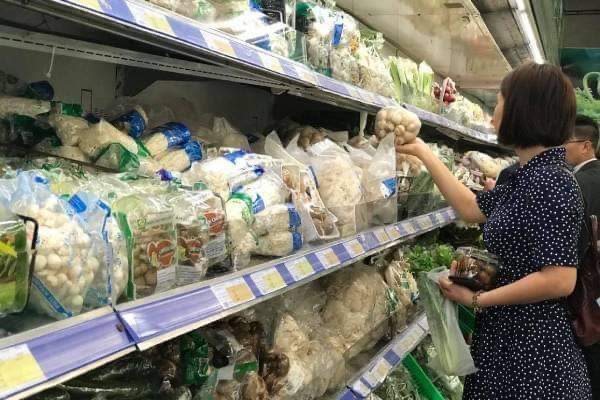 |
|
Local shoppers inspect food items at a store. Vietnamese consumers have been leaning toward local food during the Covid-19 pandemic – PHOTO: MT
|
The preference for local food is partly attributable to the limited number of products imported due to the pandemic, Nguyen Huong Quynh, chairwoman of business consulting firm The Blue Ocean, told attendees at the Vietnam Food Forum 2020.
The former head of market research company Nielsen Vietnam and Cambodia added that up to 76% of surveyed consumers said they preferred local food after the pandemic. Accordingly, this is a chance for local food to win more support from local consumers as long as it has a clear product origin and comes from popular and trusted brands, she said.
In addition, to exploit this consumer trend, food manufacturers should choose domestic materials or reallocate their input in the supply chain. This would improve marketing effectiveness and help them offer products at more reasonable prices.
Aside from the product origin, consumers also demand that product information be displayed transparently in terms of ingredients and product characteristics. Therefore, tracking food origins using the QR code will be an inevitable trend as food hygiene and safety has become one of the most important criteria for consumers when choosing products. The QR code must also be verified by a third party.
Further, the demand for healthy and plant-based products such as natural, organic, non-GMO, nutritionally-enhanced and immune-boosting food could be a leading trend in the food sector during and after the pandemic, The Blue Ocean chairperson suggested.
Food manufacturers also need to develop more distribution channels to meet the demand from consumers as in-store and online channels are not enough, said Quynh. SGT
Thuan An